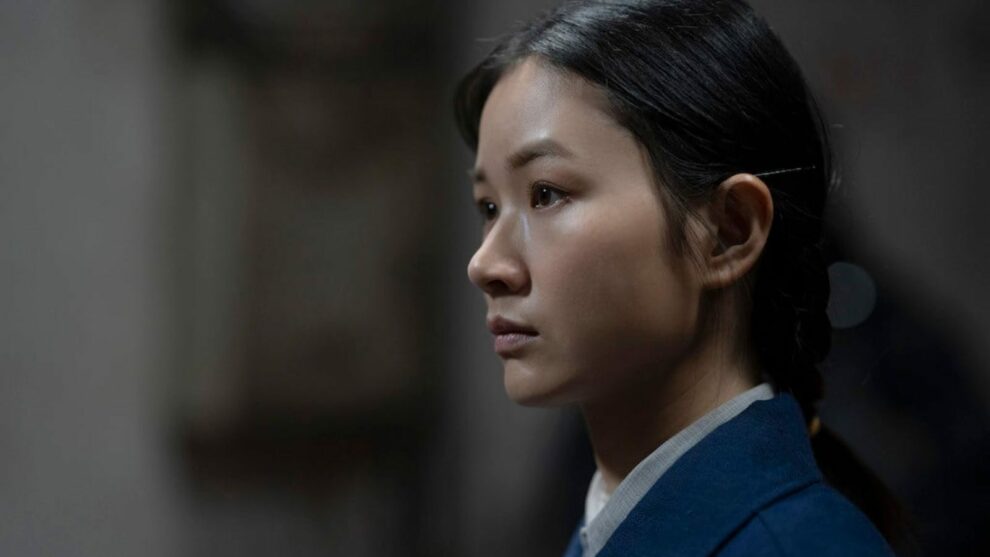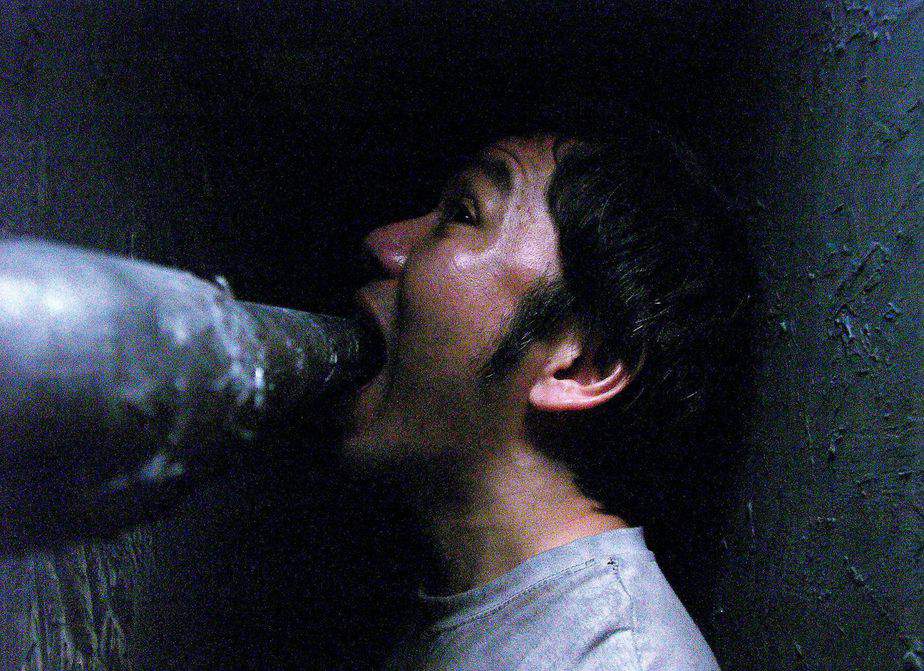Based on Zhang Xiuzhen's semi-autobiographical novel, “A Woman” follows the recipe that has given a number of masterpieces from Mainland China in the past, of the story of an individual through the decades, that also highlights the story of the nation. “To Live” and “Farewell my Concubine” are the first that come to mind, but Wang Chao proves also quite adept in this case, in a movie that has won the Best Screenplay Jury Prize from San Sebastian, and Best Actress for Shen Shi Yu from Eurasian International Film Festival.
A Woman is screening at New York Asian Film Festival

The story starts in the 60s when young Kong Xiu is a factory worker who is soon married, under all the customs of the Mao era, with a young man that eventually gets to work in a remote location, closer to where he was born, during the 70s. Kong Xiu has to raise their two children, while on her only day off, she has to go to her husband's farm and help in the fields. Things get even worse when, after an accident in the kindergarten, her daughter loses her hearing, while her husband, whose whole life seems to be dominated by his mother's will, never stops complaining. The tension between the couple grows, and eventually, they get a divorce, with the local party leader even agreeing on him taking his son to his family farm.
Kong Xiu's second husband is a military man, who immediately shows his dislike for her daughter, only caring for the baby the two have together, with the tension rising once more in the house. Furthermore, when he is injured during his work, his higher up brings him to the family house for his wife to take care of him, with her even learning acupuncture in order to help him. A moment of carelessness in front of him brings Kong Xiu's trouble at work, with the tension rising once more, followed by another divorce. As time passes, though, and in the 80s, she finally manages to even pursue a personal dream that seemed impossible before.
Check also this interview
Wang Chao directs a film that thrives on its story, with the hardships the protagonist experiences and the resistance she puts up against the norms being as captivating as possible, with the sense of drama the whole thing emits being particularly appealing. The same applies to the many comments presented throughout the movie, others quite evident, others more subtle.
The most evident one obviously refers to the status of women in an intensely patriarchal society as the Chinese, where the women were (are?) expected to marry into their husband's family, and essentially serve his whole family, while bearing as many children as possible. That both her husbands, even during intense fights, still expected her to fulfill her “duty” in the bed highlights this aspect in realistic and occasionally even brutal fashion, in a recurring scene that is quite impactful. The way she resists to everything, but almost always finds herself ‘losing”, with the taking of her son and the betrayal of her second husband, adds equally to her portrait, the aforementioned patriarchy and the blights of a system that focuses on common good in a way that essentially ignores the individual, while promoting behaviors like the aforementioned one.
This overall critique of the system is the most subtle comment here, although not to a point that the approach can be described as metaphor or allegory. The tragicomical event of the marriage, the way the local party representative makes a decision about who will take the firstborn son, the false incentives for false goals that were implemented in factories, the nationwide suspicion and snitching that took over during the Cultural Revolution are all here, presented through episodes of the story. The incidents with Kong Xiu's daughter and her second husband can also be perceived as critique also for the lack of a proper welfare and health system. In such a setting, the events that close the film, with the protagonist finally getting a break, may look as a wink towards the progress the system experienced, but considering what came before, even this aspect looks ironic, with the very ending actually cementing this approach.
Shen Si Yu in the protagonist role is impressive throughout the movie, with the way she portrays the many nuances of a character whose resistance to life essentially makes her heroic, is a true treat to watch. Even in this setting, her beauty is also evident, in an aspect though, that seems to state that in such circumstances, beauty can be a curse.
Li Chun-yu's cinematography captures the different eras the story takes place with realism and artistry, and with a simplicity that lets the protagonist shine, occasionally through frequent close ups and with a very evident “neglect” towards her husbands, which frequently are barely depicted in the frames. A sense of voyeurism also appears throughout being equally well-embedded in the narrative. Wang Chao and Yao Xiao Peng's editing results in a mid-tempo that suits the narrative, in a rather economical approach that allows such a big story to be presented in just 110 minutes. Granted, the literary/narration aspects close to the ending could have been avoided or presented differently, but that is just a small issue that is barely evident.
“A Woman” is an excellent movie that manages to present a truly captivating story and combine it with meaningful commentary.















